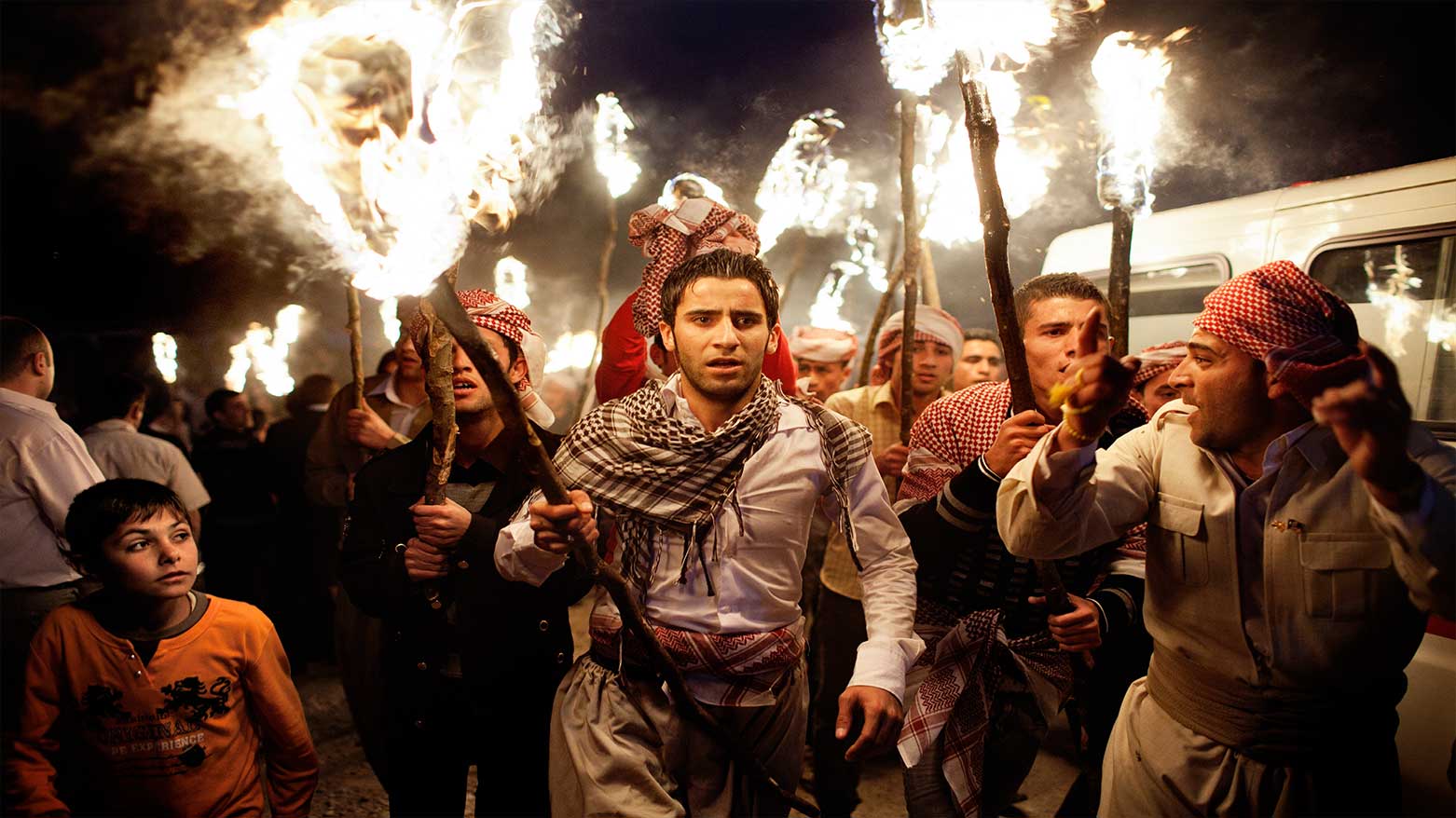Kurdistan's 34th Uprising Anniversary: A Legacy of Struggle and Progress
The statement urged all of the Kurdistan Region's political forces to unite in resolving disputes with the federal government through dialogue while upholding constitutional rights.

ERBIL (Kurdistan24) – The Kurdistan Democratic Party's (KDP) Politburo issued a statement on the occasion of the 34th anniversary of the historic Kurdish uprising, paying tribute to the sacrifices and resilience of the Kurdish people in their pursuit of freedom and self-determination.
The statement, issued on Wednesday, described the anniversary as a momentous occasion in the history of the Kurdish struggle, marking more than three decades since the people of Kurdistan stood against oppression and tyranny, inscribing a new chapter of resistance and victory. The long and arduous journey of the Kurdish movement, which includes all social and political components, has been a source of national pride and a testament to the unwavering pursuit of fundamental rights and liberties.
The document emphasized that the Kurdish national identity has been shaped through years of sacrifice and steadfast determination. The Kurdish Peshmerga forces, alongside the people, have always been the vanguard of resistance, defending the rights of the nation and ensuring the continuity of the struggle. One of the most defining moments in this ongoing movement was the uprising of March 5, 1991, in Raniya, widely recognized as the ‘Gateway to the Uprising.’ It was through the collective efforts of the people, political leaders, and all Kurdish factions that the region embarked on a transformative journey toward autonomy.
Following the uprising, a significant milestone was reached in 1992 with the establishment of the Kurdistan Parliament and the Kurdistan Regional Government (KRG), marking a pivotal shift toward self-governance. The path to institution-building, development, and progress has not been without challenges, as the Kurdistan Region continues to navigate political, economic, and security complexities both internally and externally. Despite these hardships, the resilience and unity of the Kurdish people, along with the sacrifices of the Peshmerga, have ensured the region’s stability and advancement.
A Legacy of Resistance and a Vision for the Future
On this solemn yet celebratory occasion, the KDP reiterated its commitment to national unity and the strategic interests of Kurdistan. The statement called for all political forces in the region to work collectively in addressing existing disputes with the federal government in Baghdad through dialogue, upholding the constitutional rights of the Kurdish people. Emphasis was placed on the need for cooperation and coordination among all stakeholders to protect the achievements of the Kurdistan Region and prevent the recurrence of past crises.
As the Kurdistan Region commemorates the anniversary of its uprising, it stands as a testament to the resilience of a people who have endured decades of hardship yet remain committed to democracy, federalism, and political inclusivity. The sacrifices of Kurdish martyrs, including the late Mustafa Barzani and Idris Barzani, remain a guiding light for the continued struggle toward justice, prosperity, and a stronger Kurdistan.
The Kurdistan Region’s Journey
The modern Kurdish struggle has deep historical roots. Following the collapse of the Ottoman Empire, the Kurdish people were left stateless, divided among several nations. Over the decades, successive Iraqi regimes implemented oppressive policies, including genocide campaigns such as the Anfal operations under Saddam Hussein, in which thousands of Kurds were massacred.
The 1991 uprising marked a turning point, leading to the establishment of a de facto autonomous Kurdish administration. With the US-led no-fly zone and international support, Kurdistan was able to build its institutions. The fall of Saddam Hussein in 2003 further solidified the Kurdistan Region’s role as a key political and economic player in Iraq. Today, the KRG maintains diplomatic ties with global powers, attracts foreign investment, and continues its push for greater political and economic stability.
Despite ongoing challenges, the Kurdistan Region remains a beacon of resilience and a model for self-governance in the Middle East. As the 34th anniversary of the uprising is commemorated, the people of Kurdistan reaffirm their commitment to preserving their hard-earned achievements and working toward a prosperous and democratic future.